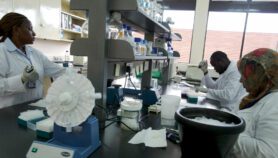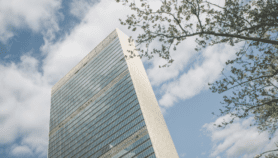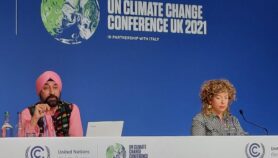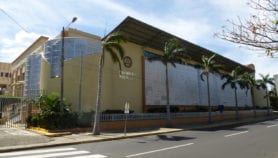Send to a friend
The details you provide on this page will not be used to send unsolicited email, and will not be sold to a 3rd party. See privacy policy.
[BRIGHTON] Scientists should avoid feeling that they must present a consensus on advice they give policymakers, and recognise the importance of being open about scientific uncertainty, a symposium in Brighton, United Kingdom, was told last week (6-7 February).
They should also do more to understand how vested interests affect the way scientific evidence is presented to decision-makers, according to speakers at the meeting organised by the STEPS (Social, Technological and Environmental Pathways to Sustainability) Centre at the University of Sussex’s Institute of Development Studies.
SPEED READ
- Requiring consensus in scientific advice means uncertainty may be ignored
- It can also end vital debate and lead to closed minds on key issues such as the MDGs
- The Rio+20 summit was a good example of how scientists can provide timely and well-organised advice
Mike Hulme, professor of climate change at the University of East Anglia, United Kingdom, challenged the notion that climate science needed to be consensual to be authoritative by referring to the strategy adopted by the Intergovernmental Panel on Climate Change (IPCC) to release a single, authoritative consensus report every few years to describe the state of climate knowledge.
He said the IPCC and others had argued that a lack of consensus in presenting scientific evidence to policymakers would undermine the authority of science, as it would suggest that conclusions had been reached prematurely.
But consensus required agreement in a group where such agreement might not exist, Hulme said.
In contrast, acknowledging minority opinions enhanced the authority of science by demonstrating its openness to evidence-based discussion, he said.
"Climate science should welcome and seek out criticism," Hulme said.
The tragedy of ‘Climategate’ — the name given to the 2009 leak of emails between scientists at the University of East Anglia — was that the messages showed a scientific culture closed to criticism and resistant to the open sharing of data, he added.
"By going down this path, the climate scientists handed critics an easy target and converted scientific arguments into arguments about the authority of science," he said. "In this way, the search for consensus can become a weakness rather than strength."
Miles Parker, former deputy chief scientific adviser at the UK’s Department for Environment, Food and Rural Affairs, said policymakers needed to be told about any uncertainties in the scientific advice they receive.
For government policies to work, they needed to be trusted and so had to be based on the best possible evidence, but also based on awareness of the potential limitations of such evidence, he said.
"We need honesty about the gaps in knowledge," said Parker. "We need science advisers who can recognise uncertainty when they see it."
Lidia Brito, director of science policy at UNESCO (the UN Educational, Scientific and Cultural Organization), said it was important for the scientific community to anticipate policymakers’ needs, as it had done successfully in the run-up to last year’s UN Conference on Sustainable Development (Rio+20), held in Rio de Janeiro, Brazil.
"For two years before the Rio meeting, we produced policy briefings and engaged with the scientific committee of the conference and the global sustainability panel, so that even before the conference took place, the message of the scientific community was being conveyed in various forms," she said.
Brito added that scientists had to be involved in helping policymakers frame the right questions.
But to do so, she said, "we must maintain the ability to question both ourselves and others. That will allow us to maintain both the necessary quality of science and the timely delivery of science for policymaking."
Melissa Leach, director of the STEPS Centre, said: "We also need to think about how debate can be closed down by the appearance of consensus, single goals and narrow agendas — such as discussion around the Millennium Development Goals — or through ritualistic processes which often take the place of energetic, open debate."













